Life in Rural Japan: Three International Kochi Residents
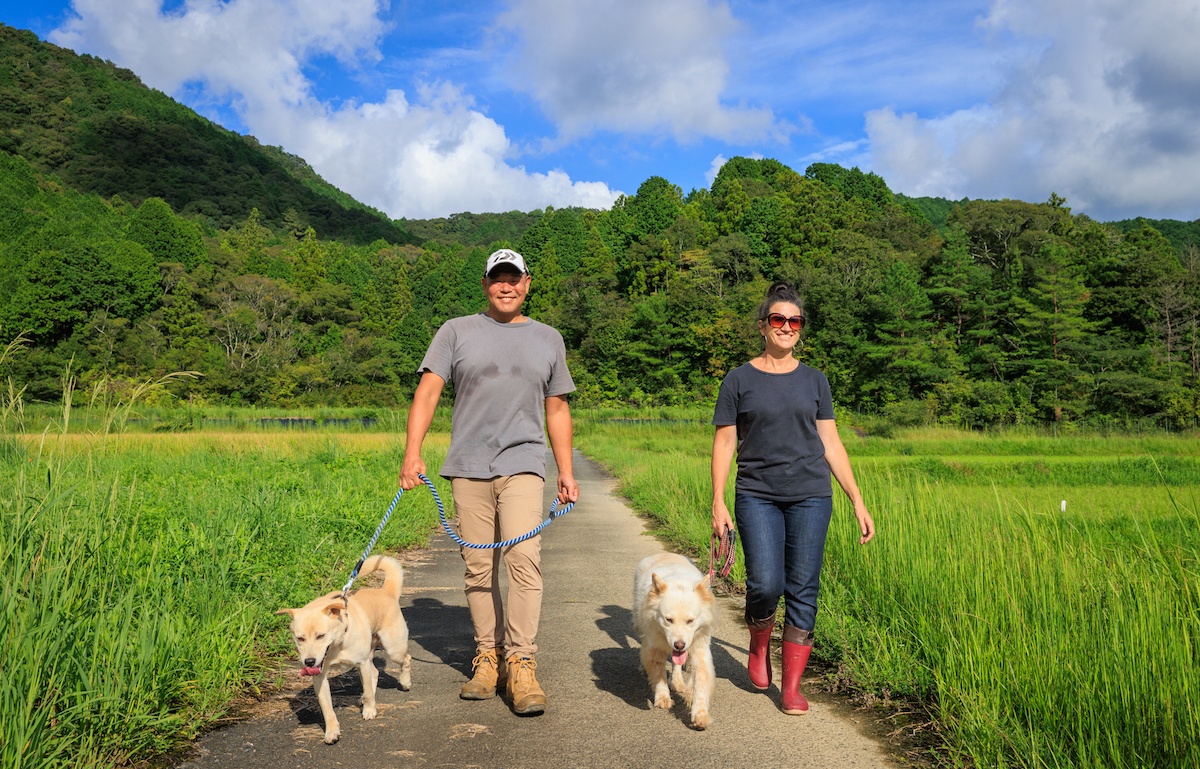
Photo courtesy of Takuya Hosogi
Many foreign nationals in Japan are attracted to the relative familiarity and diversity of big city life. In recent years, however, an increasing number are basing themselves in smaller, regional locations. Louise Kittaka meets three people who have made nature-rich Kochi Prefecture their home.
What these residents are giving up in terms of international connections and convenience is often more than compensated by opportunities to pursue a passion or start a new business, supported by connections with welcoming local communities.
The biggest of Shikoku’s four prefectures in terms of area, Kochi is known for its pristine waterways, beautiful beaches and sunny climate.
Ken Mukai: Brewmaster General at Mukai Craft Brewing
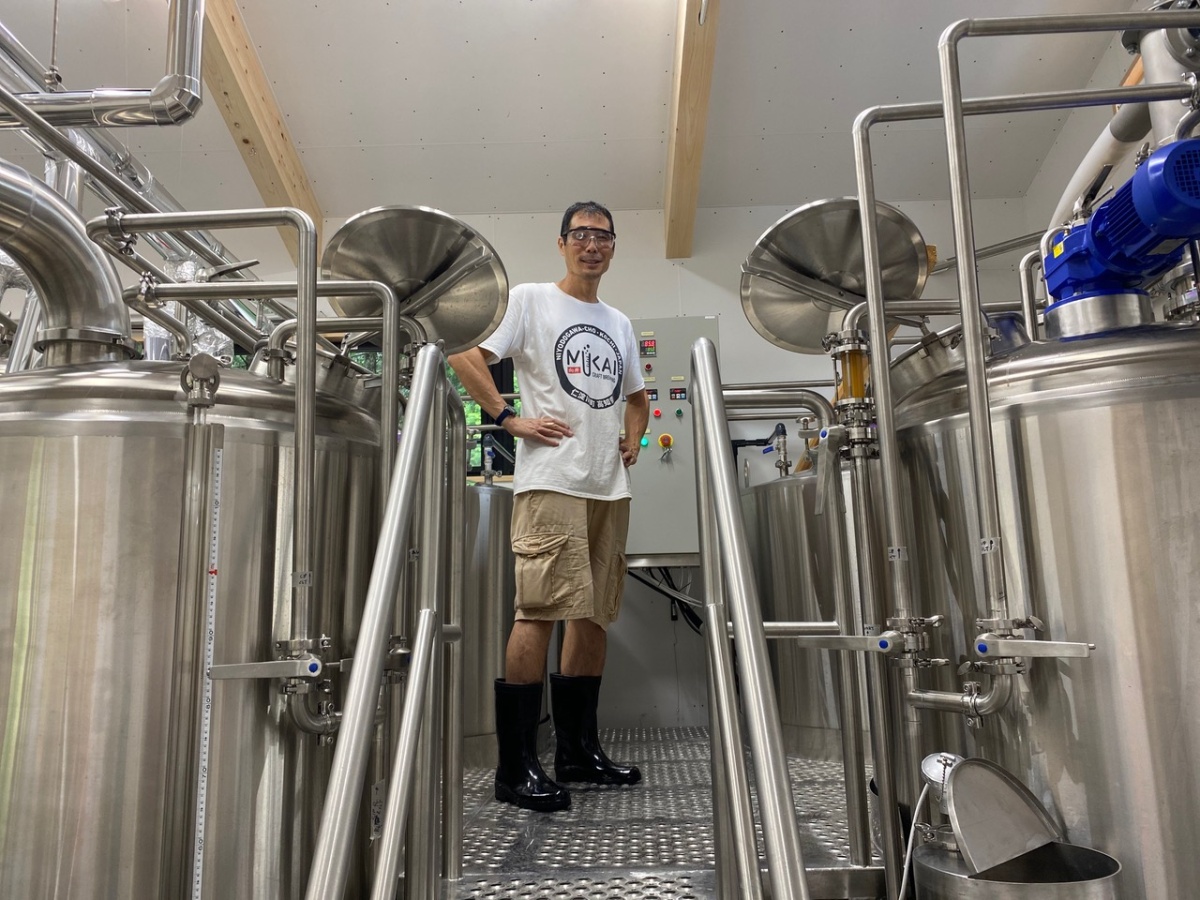
Good Brews: Ken Mukai checks on the progress of craft beers made with with 100% Niyodogawa mountain spring water. (Photo courtesy of Mukai Craft Brewing)
Kochi’s Niyodo River is famed for its clear, high-quality water and shimmering turquoise hue. It also lends its name to the town of Niyodogawa, home of Mukai Craft Brewing and the Blue Brew Taproom. American Ken Mukai and his Tokyo-born wife, Masako, left their home base in Los Angeles to establish their beer brewery there in early 2019, followed by the taproom 18 months later.
Ken’s connections with Kochi go back much further, however. His first encounter was in 1995, when he came to see a cousin who was working in Sakawa Town. “I fell in love with Kochi from that trip,” he recalls. He continued to make regular visits over the years, while building a rewarding career as a high school chemistry teacher in California.
“I was an experienced home brewer in LA, and my friend in Sakawa, which neighbors Niyodogawa, suggested we start a brewery in Kochi. We laughed about his suggestion at first, but over the course of a few years Masako and I gradually warmed up to the idea, until we finally decided to make the move,” says Ken.
“We produce delicious beers that showcase ingredients from our town—such as pure mountain spring water, unique fruits and vegetables, tea, and hops.”
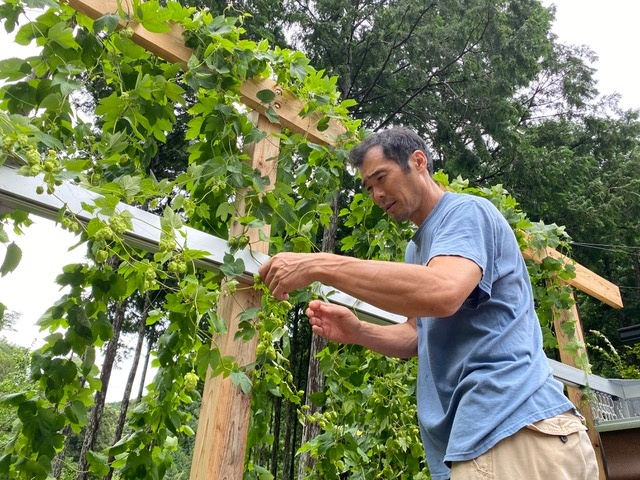
Growing Strong: Mukai Craft Brewery has formed close ties with the local community, helping to grow the business. (Photo courtesy of Mukai Craft Brewery)
Like any new business, obtaining the necessary licenses, installing the equipment and perfecting the product brought challenges, which were compounded for Ken when everything was done in Japanese. The ongoing support of the local community, which is keen to welcome new ventures to Niyodogawa, has been a vital factor for successful integration.
“We asked for advice from established breweries in Japan. We got involved with our community, such as going to town meetings, festivals, clean ups. In turn, our community helped us weave through our challenges,” says Ken.
The couple are increasingly involved in efforts to help put Niyodogawa on the map, with an ongoing commitment to revitalization endeavors to increase tourism and encourage other people to settle down there.
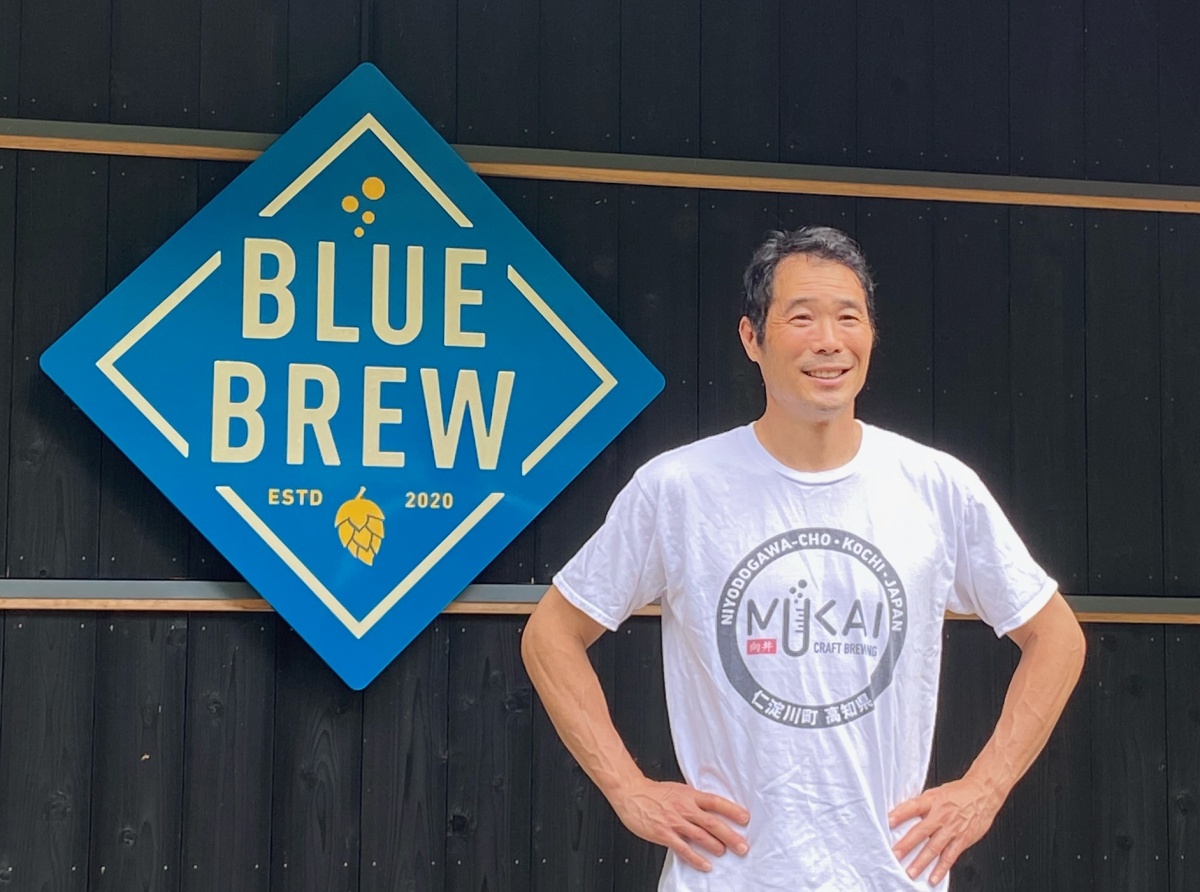
Looking Ahead: Mukai Craft Brewery plans to coordinate their Blue Blue Taproom experience with other local businesses. (Photo courtesy of Mukai Craft Brewery)
“We’ve done this by producing delicious beers that showcase ingredients from our town—such as pure mountain spring water, unique fruits and vegetables, tea, and hops,” Ken explains. “We hope to continue to make new beers, and also coordinate our taproom experience with other local businesses—outdoor activities, onsen, hotels and restaurants—to make stays in Niyodogawa even better organized and fun.”
The Kochi Craft Beer Association was launched this year, with Mukai Craft Brewing joining forces with the four other craft breweries in the prefecture. “Our goal is to support each other, help new craft breweries get established, and make Kochi known as a spot not just for great sake, but also great craft beer!” says Ken.
For more information: mukaicraftbrewing.com
Rosie Maloney: Guesthouse Owner and Farmer
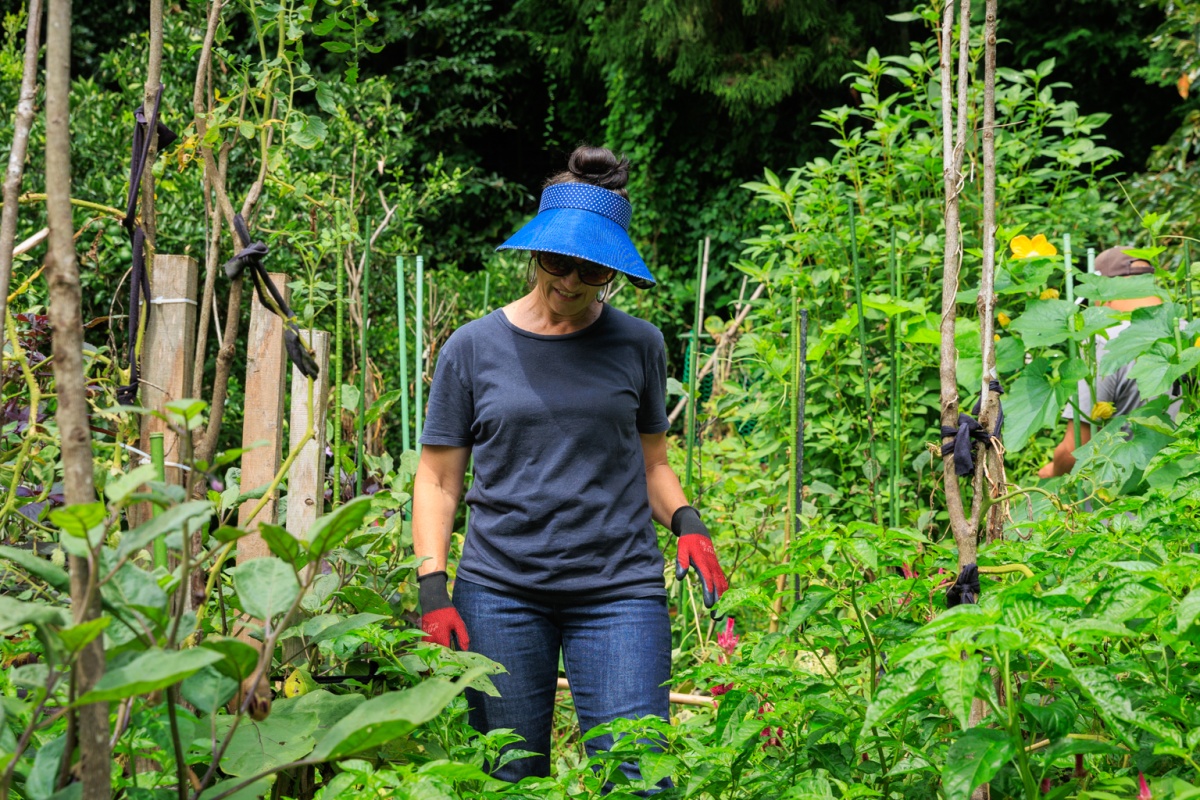
Green Paradise: Rosie Maloney was attracted by the abundance of nature in rural Kochi. (Photo courtesy of Takuya Hosogi)
Raised in a dairy-farming family near the city of Warrnambool in south-western Victoria, Australian Rosie Moloney has called Kochi prefecture “home” for more than a decade. Rosie, husband Tsuyoshi and their two dogs are one of around 750 households that make up Mihara Village, a community nestled in the mountains of the Hata District. Rosie has lovingly restored two former farmers’ homes, turning them into comfortable, self-contained guesthouses for visitors seeking a rural retreat. She also grows organic rice and vegetables with her husband.
Arriving in Kochi in 2013, Rosie’s original intention was to teach English “for a year,” but she soon found herself falling deeply in love with her new locale. “I cried every day for the first month as I drove to work along the Shimanto River! The beauty and abundance of the water and nature cast a long and strong spell on me,” she recalls. She met farmer and fellow dog-owner Tsuyoshi in her fourth year, and they combined forces—and canines—to build a new life together in Mihara.
“It takes time to build relationships here, but don’t be afraid to ask for help."
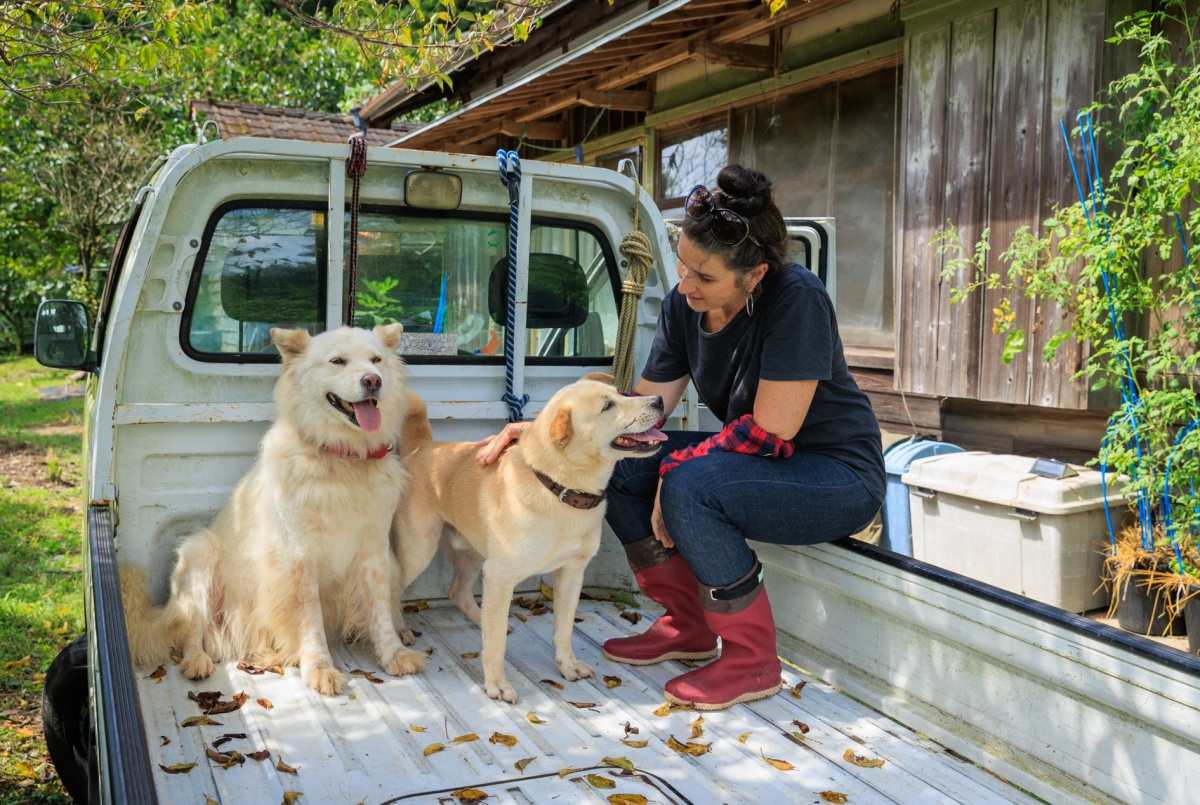
Furry Friends: Rosie enjoys a quiet moment with her dogs. (Photo courtesy of Takuya Hosogi)
Having married and entered this phase of life relatively later than many people, Rosie says that time is the biggest challenge in trying to accomplish all her goals. “New business, new skills, new language, new friends, new relationship, one more dog…. There are never enough hours in the day, and learning the Japanese language is last on the list. I will regret this for sure later in life!” she says with a grin. She is also juggling family responsibilities in Australia, but welcomes the chance to take a break and connect with her homeland on annual visits during in the Japanese winter.
Rosie loves her life in Kochi and can’t imagine living anywhere else. “I always say to ‘find your people,’” she says. “It takes time to build relationships here, but don’t be afraid to ask for help. Locals are extremely generous with their time and love sharing their knowledge and skills with those that will listen.”
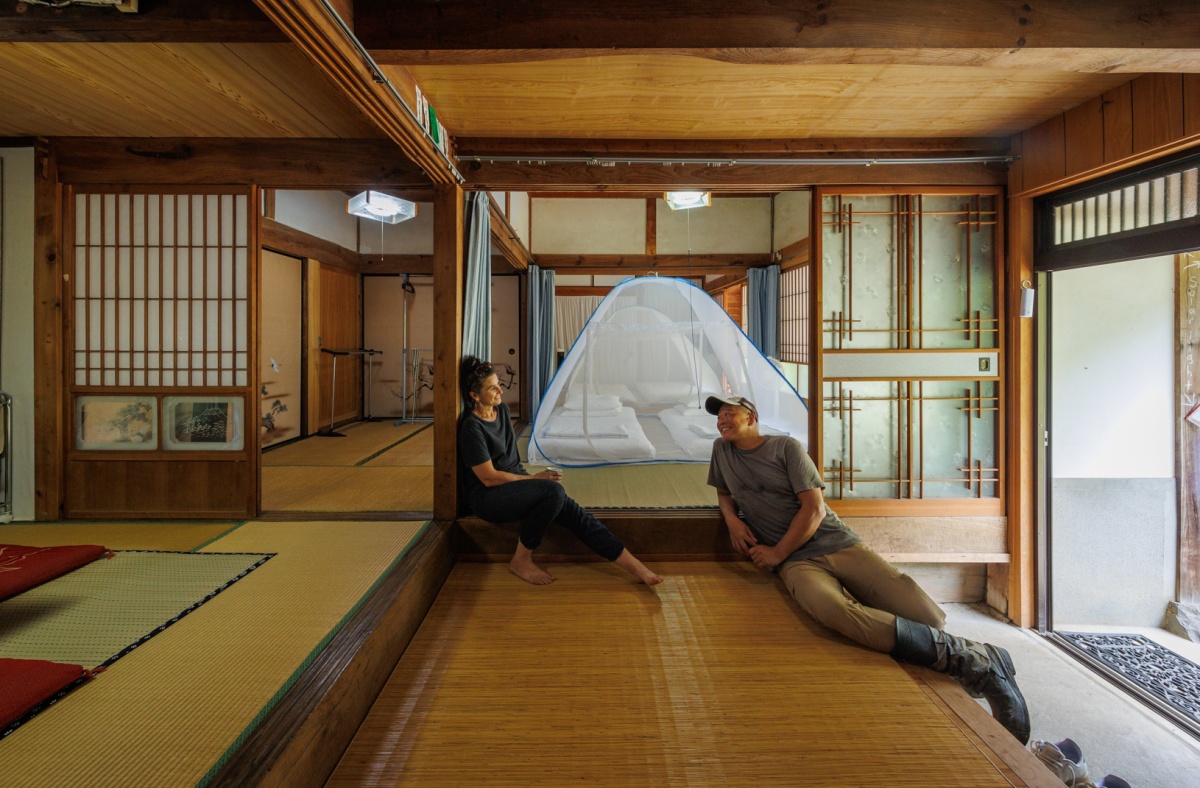
Rural Retreat: Rosie and Tsuyoshi at the Mihara guesthouse, where visitors can experience a relaxing countryside stay. (Photo courtesy of Takuya Hosogi)
One of Rosie’s passions is permaculture. “It’s all about having a closed circle with what we use and consume. The mountains give us everything we need to create an environment for great soil and, therefore, healthy food,” she explains.
“We have access to extremely delicious food here, and we’re involved with a community of kind, knowledgeable and creative people. And we’re in a situation in which we can share it with others, and in doing so, can often create a positive change in their lives,” Rosie says. “Kochi makes a deep impression on many people that come here, and I feel blessed to be a bridge into this special area of the world.”
For more information:
Mihara Village Airbnb
Shimanto Town Airbnb
Jesse Cunningham: Bladesmith Apprentice at Workshop Kurogane
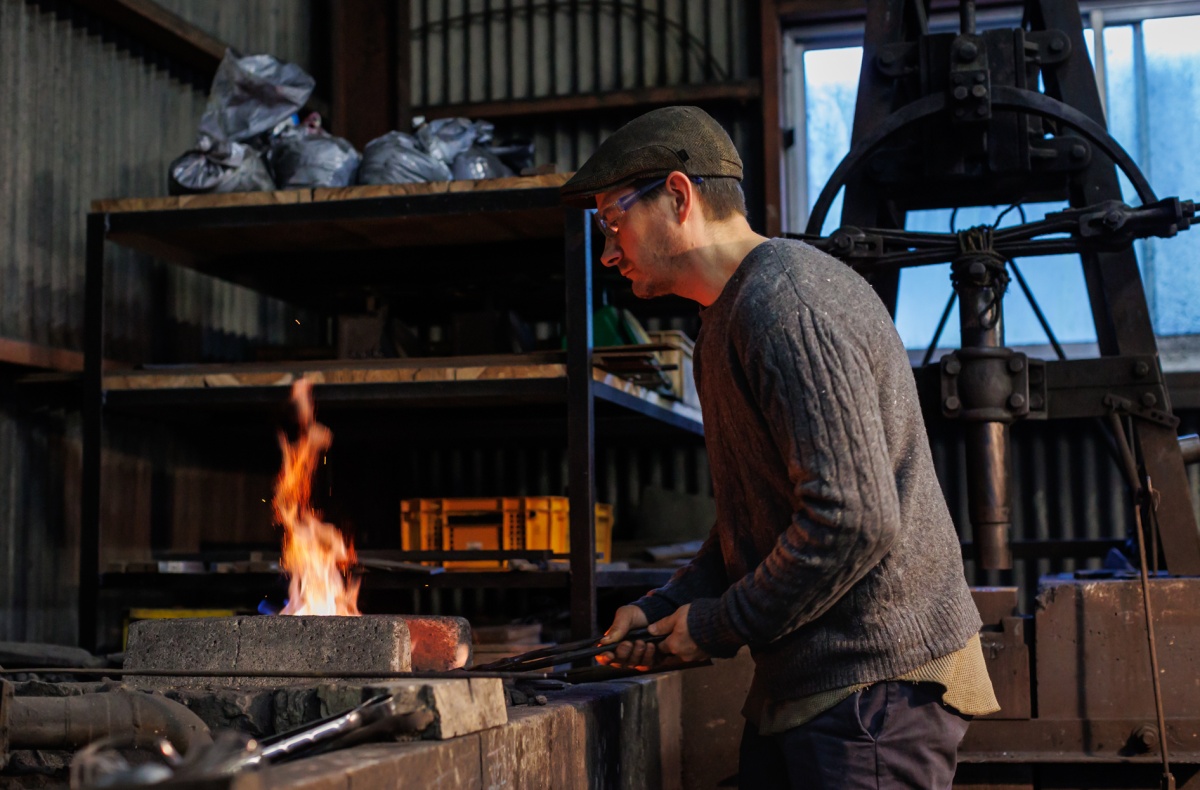
Firing Up: Jesse Cunningham is studying Japanese toolsmithing techniques at Workshop Kurogane. (Photo courtesy of Takuya Hosogi)
Like many foreign nationals, Canadian Jesse Cunningham first arrived in Japan through JET, a teaching program sponsored by the Japanese government. He swapped his job as a manager at an art-handling firm in Vancouver for the role of ALT (assistant language teacher) in Oita Prefecture. Jesse, however, already had his eye on learning toolsmithing in Japan.
Having previously studied and worked at blacksmithing and decorative metalworking, he was keen to get back into this field. “I like the idea of helping other people create their crafts by making their tools. I felt that Japan had the best toolsmiths and would be the place to learn, so I got a job as an English teacher to give myself time and resources to search for a shop where I could learn,” he explains.
His research led him to Nobuya Hayashi of Workshop Kurogane, who offers knifemaking and iron-forging experiences in a rural part of Shimanto City, alongside the Shimanto River.
"Participants in Kurogane’s one-day blacksmith experience can pound out red hot iron to make their own kitchen knife."
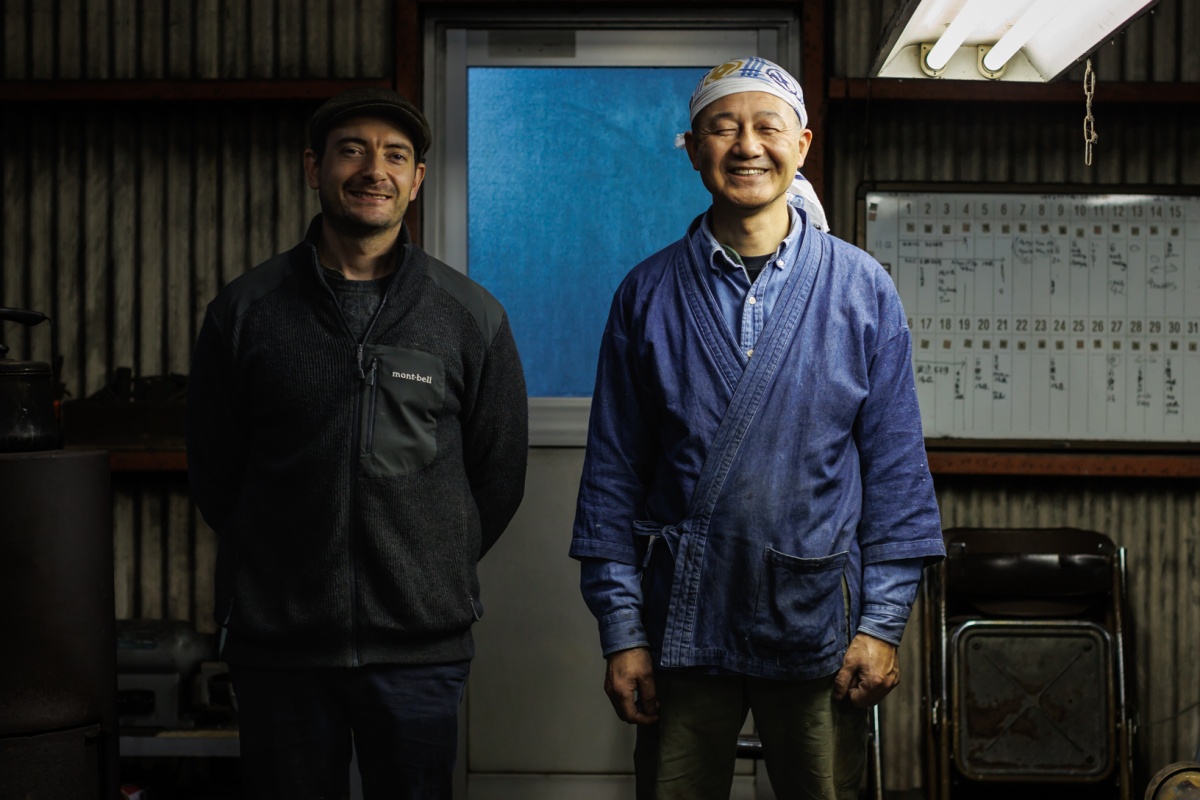
Traditional Teaching: Jesse with teacher Nobuya Hayashi at Workshop Kurogane. (Photo courtesy of Takuya Hosogi)
“I enrolled in one of these experiences during my time as an English teacher. After completing my teaching contract, I returned to the workshop for a more involved lesson, after which I was offered an opportunity to work in the shop as an apprentice smith,” says Jesse, who has been based at Kurogane since 2021.
Participants in Kurogane’s one-day blacksmith experience can pound out red hot iron to make their own kitchen knife, which is very popular with international visitors. With inbound tourism booming, Jesse’s activities include helping workshop guests and making kitchen knives for customers. He is also continuously honing his own skills under the tutelage of the good-natured Nobuya, in a mixture of English and Japanese.
Jesse says that he has found the people to be welcoming, supportive and patient. He also loves walking his dog through the forests and going for a swim in the sparkling Shimanto River.
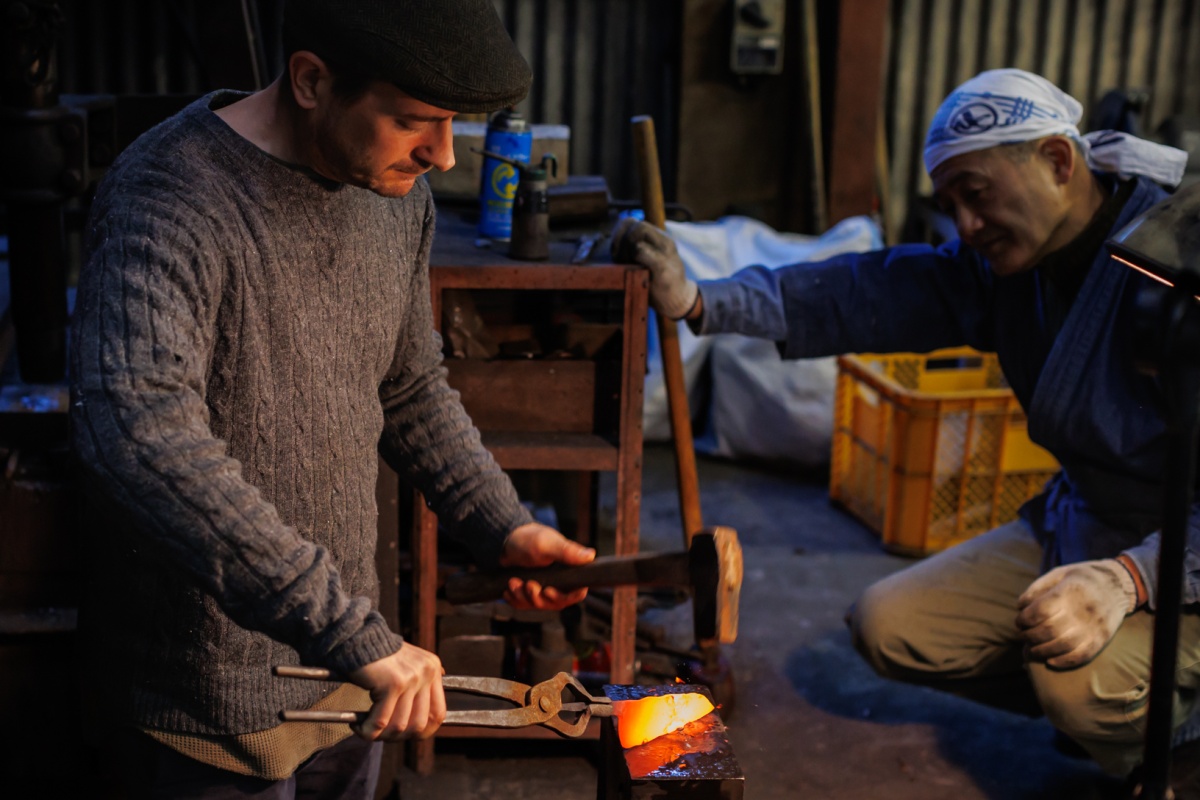
Creative Collaboration: Jesse is continuing his studies, while assisting Nobuya with knife-making experiences for Kurogane's visitors. (Photo courtesy of Takuya Hosogi)
Jesse offers some pragmatic advice for other foreign nationals hoping to put down roots in rural Japan. “One of my best decisions was to come to the country under the umbrella of a large organization like JET. Even if teaching is not your ultimate objective within the country, it is a great way to set up bank accounts, get an apartment and, most importantly, a work visa. It may take time to find what you are looking for, and a job like teaching English is a good way to buy you that time,” he points out.
Jesse is very content with his current lifestyle at this stage but hasn’t ruled out the idea of perhaps having his own workshop down the line, where he can continue the Kurogane tradition that he has come to respect and enjoy so much.
For more information: Kurogane webpage



